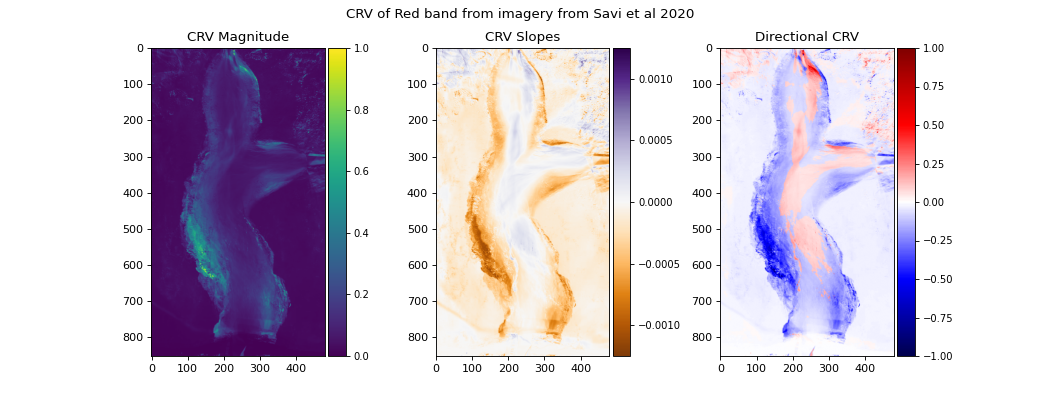deltametrics.mobility.calculate_channelized_response_variance¶
- deltametrics.mobility.calculate_channelized_response_variance(arr, threshold=0.2, normalize_input=False, normalize_output=False)¶
Calculate the Channelized Response Variance (CRV).
This function takes a t-x-y array and calculates its directional CRV [1]. In short, the function does the following:
Normalizes the array at each time slice if desired.
Calculates the CRV magnitude (aka variance along time-axis) and normalizes this array if desired.
Does linear regressions through time for each pixel and returns the slopes.
Calculates the directional CRV using a slope threshold value.
Returns the CRV magnitude, slopes, and directional CRV values
- Parameters:
arr (numpy.ndarray) – A t-x-y 3-D array to calculate the CRV on.
threshold (float, optional) – Threshold for CRV calculation. The default is 0.2.
normalize_input (bool, optional) – Whether to normalize the input images pixel values to 0-1. The default is False.
normalize_output (bool, optional) – Whether to normalize the output image pixel values to 0-1. The default is False.
- Returns:
crv_magnitude (numpy.ndarray) – A t-x-y 3-D array with the CRV magnitude.
slopes (numpy.ndarray) – A t-x-y 3-D array with the slopes of the linear regressions.
directional_crv (numpy.ndarray) – A t-x-y 3-D array with the directional CRV.
Examples
(
Source code,png,hires.png)